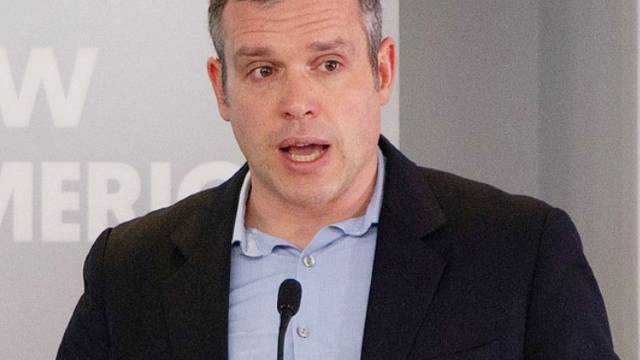By Carol Stiffler
When Ian Fishback died on November 19, the world got a bit darker. We lost someone very special.
Ian was locally famous before he’d ever enlisted in the military. Most of us knew him one way or the other, and he’d built a reputation for unmatched excellence before he graduated from Newberry High School in 1997. Just one year behind him at NHS, he was always in my line of vision. He took his school work very seriously, behaved with a great deal of character, pushed himself in athletics, and was a standout in each of those areas.
When he not only enlisted in the Army but applied to study at the elite Academy at West Point, people who knew Ian nodded. Working harder, reaching farther, insisting on excellence: That was Ian. We were very proud of him, but not necessarily surprised; of course Ian belonged at West Point.
Ian slipped from my radar until 2005, when he burst into the national scene with that famous letter to Sen. John McCain. He’d been taught clearly how to treat prisoners of war while learning at West Point, and saw something much different happening in Iraq. Torture and brutality against American prisoners of war, which he was witnessing, could never sit well with Ian; those were humans, just like him. He stood, without pride or spite, and spoke in defense of values America claimed to treasure.
He was so true to American ideals that American senators could hardly vote against the resulting Detainee Treatment Act of 2005 – an act that prohibited cruel, inhumane, and degrading treatment to any prisoner of the U.S. government – and the act passed the Senate with a final vote of 90-9. That margin goes beyond anything we’d call “bi-partisan”. That was almost non-partisan — just purely American, as Ian was.
That was 16 years ago, and a lifetime achievement. But Ian did much more after that. He earned a master’s degree in philosophy, then designed the philosophy course he taught at West Point. His curriculum is still in use today, and his students remember how he taught them to think. He dove into philosophy, essentially the study of human thought, the universe, and how humans fit within the universe. Powering him was a strong sense of humanity and justice, and justice for humanity.
Though Ian is gone now, his work is still out there. We can watch YouTube videos and see him discuss the morality of war. Written statements show he was still urging U.S. senators to stand against abuse of detainees in 2017. In 2021, he published his doctoral thesis, which he titled “Method and the Morality of War”.
He dedicated it to “the innocent victims of the Central Intelligence Agency.”
That line, the single line of content on the dedication page, speaks volumes about where his head was in his final years of life. Convinced he was being persecuted by central intelligence in response to his stance against torture, his paranoia grew and his mental health waned. He was fighting one final perceived battle.
“I was in a room in 2005 in centralized training where they taught future special forces officers that we need to torture to win in Iraq,” he told me in May of this year. He repeated that line like a mantra. He wanted every president who had held office since then to be tried for war crimes. He wanted to change the world, to protect humanity from this injustice.
Humanity and justice drove him even this year, when he was sure nothing was as it seemed.
Ian needed help more than anyone else I’ve ever known, and as a veteran, he deserved the best help. As a humanitarian and self-described “expert on justice”, he deserved to be treated as a human in need, and to be protected while he healed.
In his final months, he taught us one more thing: the state of mental health care is very poor.
We tried so hard to help him. Many of us desperately searched for options, only to find there were none until he committed some sort of crime or could be declared a threat to the public or himself. That was unlike Ian to his very core, and he didn’t do those things. He also didn’t want our help, an offering that triggered his paranoia. Outreach efforts from neighboring veterans agencies were botched.
Individual rights are so tricky in these cases, when someone needs help but refuses it. Precious time ticks away. Ian’s last months were torturous in their own way.
Once he was finally brought into care -— half willing — a new problem rose. Nationwide, and certainly in Michigan, there aren’t enough beds for mental health patients. It’s very hard to become an inpatient in a facility. Ian languished in an adult care facility, which wasn’t what he needed, but there was a bed for him there.
His longtime friend saw the crisis and launched a last-ditch effort to raise $60,000 in private funds from private citizens to get Ian into a private facility. The Army wouldn’t help, because Ian had retired, and the Veterans Affairs department couldn’t help soon enough. They were mired in a paperwork and appeals process.
Receiving treatment but not care, Ian’s life ended for unknown reasons in a twist that feels cruel and inhumane.
In addition to all those brave and disciplined things Ian taught us, he left behind one more lesson. We now have proof and a testimony that it’s very hard to get efficient and valuable mental health care, even when it is urgently needed.
Ian did not live in vain, and we must not let him die in vain. In life, he worked tirelessly to improve our nation’s standards. With his death, we know that great effort needs to be made to improve standards and accessibility of mental health care.
Rest now, Ian. You were tremendous, and we are so proud of you.







